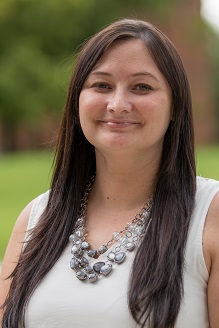
Public relations remains in the early stages of its development as a multi-paradigmatic discipline that can simultaneously demonstrate both academic and practical value. Public relations educators regularly walk the line between top-down theoretical discussions and the bottom-up tactical skill sets that students often desire most. Public relations programs are described as professional- or academic- degrees; however, the differences in reality may not be so distinct when academics seek to incorporate knowledge about theory, methods, and research as major components of both. Can we simultaneously prepare students for both professional and academic careers? I think so.
The challenge and future for the Institute for Public Relations is in continuing its mission in research that matters for practice. The implications of making the academic more digestible and relevant allows for the early initiation of the value of research among public relations students who are the future of our discipline (as both academics and professionals). Similarly, as scholars embrace more diverse theories, methods, and perspectives, so too will the lenses through which our students understand the role of public relations in organizations and society diversify.
Here I humbly offer some key strategies for the future of public relations education, not in the form of specific curricular improvements, but in the IPR tradition of building essential bridges between research and practice:
- Connect the dots. Students engage in coursework that should build upon itself in meaningful ways; however, when engaging in separate course topics, they often lose sight of the cohesive whole. If students are able to understand the central role of theory, method, and research for critical-thinking and problem-solving across contexts, they are better prepared to understand its value as professionals.
- Integrate interdisciplinary, research-based projects. Students diversify their perspectives through interdisciplinary collaborations. Also, students are able to understand the convertibility of large-scale concepts in the form of theory and method when projects allow them to apply concepts in new contexts.
- Engage in the community. Students who participate in service-learning projects are able to realize the impact of their earned knowledge. Students should embrace the idea that what they say matters because communication influences attitudes and behaviors. When students understand research, they also understand how to use communication to affect changes in awareness, acceptance, and action that can positively impact the communities where they live as students. Building respect and connections with the communities where they may only live temporarily is an added bonus.
- Play like a champion today. (I “borrowed” this from Notre Dame.) The idea here is that just as important as technical skill sets, students should be exposed to leadership, professionalism, and character development opportunities as emerging public relations professionals. Excellence should be expected of students both inside and outside the classroom. As teacher-scholars, we have the unique opportunity to structure the knowledge of individuals in such a way that it influences the people they become. When we challenge students to think bigger and work harder, we make them more competitive, skilled, and thoughtful members of the discipline.
Public relations education will progress alongside scholarship and practice. In this way, public relations teacher-scholars are trailblazers that set the tone for the future of our discipline. And, if public relations educators are the impetus of knowledge for our future colleagues, then the Institute serves as a repository for that knowledge. Under a legacy of fantastic leadership, the future of the Institute is bright. IPR illuminates the path across the bridge from research to practice.

Melissa D. Dodd, Ph.D., APR, is an assistant professor at the University of Central Florida. She is also a research fellow for IPR’s Behavioral Insights Research Center. Follow her on Twitter @mellydodd.



